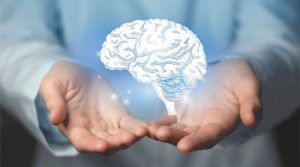A Comprehensive Guide
By Alik Minikhanov, AP, DOM
 Parkinson’s disease (PD) is a progressive neurological disorder that affects millions of people worldwide. Despite advancements in conventional treatments, managing PD remains a challenge due to its complex and multifaceted nature. In recent years, an ancient healing practice, neuroacupuncture, has garnered attention as a promising adjunct therapy for PD. Combining traditional acupuncture techniques with modern neuroscience principles, neuroacupuncture offers a unique approach to addressing the underlying neurochemical imbalances and neurological dysfunction associated with PD.
Parkinson’s disease (PD) is a progressive neurological disorder that affects millions of people worldwide. Despite advancements in conventional treatments, managing PD remains a challenge due to its complex and multifaceted nature. In recent years, an ancient healing practice, neuroacupuncture, has garnered attention as a promising adjunct therapy for PD. Combining traditional acupuncture techniques with modern neuroscience principles, neuroacupuncture offers a unique approach to addressing the underlying neurochemical imbalances and neurological dysfunction associated with PD.
In this comprehensive guide, we delve into the mechanisms and evidence supporting the use of neuroacupuncture in the management of Parkinson’s disease.
Understanding Neuroacupuncture
Neuroacupuncture is a specialized form of acupuncture that integrates traditional acupuncture principles with insights from neuroscience. Unlike conventional acupuncture, which focuses on restoring the flow of Qi (vital energy) along meridians, neuroacupuncture targets specific neurological conditions by stimulating key points on the body, including the scalp, ears, and extremities.
By strategically placing fine needles, neuroacupuncture aims to modulate neurotransmitter activity, regulate neural circuits, and promote neuroplasticity—the brain’s ability to adapt and rewire in response to stimuli.
How Does Neuroacupuncture Help?
1. Regulation of Neurotransmitters: Parkinson’s disease is characterized by a deficiency of dopamine, a neurotransmitter essential for motor function. Studies have shown that neuroacupuncture can enhance dopamine release in the brain, thereby alleviating motor symptoms such as tremors, rigidity, and bradykinesia.
2. Modulation of Neural Circuits: Neuroacupuncture targets specific brain regions implicated in Parkinson’s disease pathology, including the basal ganglia and related motor circuits. By modulating neural activity within these circuits, neuroacupuncture helps restore the balance between excitatory and inhibitory neurotransmission, leading to improved motor control and coordination.
3. Promotion of Neuroplasticity: Neuroacupuncture stimulates neurogenic niches within the brain, such as the subventricular zone and hippocampus, where new neurons are generated. By promoting neuroplasticity, neuroacupuncture facilitates the formation of new neural connections and the rewiring of existing circuits, which may contribute to motor recovery and functional improvement in individuals with PD.
4. Reduction of Oxidative Stress and Inflammation: Parkinson’s disease is associated with oxidative stress and neuroinflammation, which contribute to neuronal damage and disease progression. Neuroacupuncture exerts antioxidant and anti-inflammatory effects, thereby mitigating oxidative damage, suppressing inflammatory responses, and protecting neurons from degeneration.
5. Improvement of Non-Motor Symptoms: In addition to motor symptoms, PD can manifest as a range of non-motor symptoms, including depression, anxiety, sleep disturbances, and autonomic dysfunction. Neuroacupuncture addresses these symptoms by regulating the activity of the autonomic nervous system, modulating neurotransmitter levels, and promoting emotional well-being.
Supported by Science: The Clinical Evidence
Numerous clinical studies and systematic reviews have investigated the efficacy of neuroacupuncture in the management of Parkinson’s disease. For example, a randomized controlled trial published in the Journal of Neurology found that neuroacupuncture combined with conventional medication significantly improved motor function and activities of daily living in patients with PD compared to medication alone. Similarly, a meta-analysis published in the Journal of Alternative and Complementary Medicine concluded that acupuncture, including neuroacupuncture, was associated with significant improvements in motor symptoms, quality of life, and disability scores in PD patients.
Moreover, neuroimaging studies have provided insights into the neurobiological mechanisms underlying the therapeutic effects of neuroacupuncture in PD. Functional magnetic resonance imaging (fMRI) studies have shown that neuroacupuncture modulates activity within the basal ganglia and related motor circuits, as well as the mesocorticolimbic reward pathway, which may contribute to its anti-Parkinsonian effects.
Conclusion
Neuroacupuncture offers a promising adjunctive therapy for individuals living with Parkinson’s disease, addressing both motor and non-motor symptoms while promoting overall well-being. By targeting the underlying neurochemical imbalances and neurological dysfunction associated with PD, neuroacupuncture harnesses the body’s innate healing mechanisms to alleviate symptoms, improve function, and enhance quality of life. As research in this field continues to advance, neuroacupuncture holds immense potential as a safe, effective, and natural approach to managing Parkinson’s disease.
My practice specializes in assisting many patients struggling with Parkinson’s disease and other neurological conditions including Alzheimer’s disease and Post Traumatic Stress Disorder (PTSD) through the application of neuroacupuncture. We have witnessed significant improvements with many of our patients and highly recommend regular treatment sessions to optimize potential lifestyle improvements.
I AM DESIGNED TO HEAL
239.322.3817
WWW.IAMDESIGNEDTOHEAL.COM
826 Anchor Rode Dr., Naples, FL 34103
References:
1. Cho SY, et al. Efficacy of acupuncture in patients with Parkinson’s disease: a randomized controlled trial. J Neurol. 2010;257(4): 558-65.
2. Lee MS, et al. Acupuncture for Parkinson’s disease: a systematic review and meta-analysis of randomized controlled trials. J Altern Complement Med. 2009;15(5): 547-54.
3. Wang X, et al. Modulatory effects of acupuncture on brain networks in mild cognitive impairment patients. Neural Regen Res. 2014;9(11): 1163-9.
4. Zhang Y, et al. Acupuncture modulates the functional connectivity of the default mode network in stroke patients. Evid Based Complement Alternat Med. 2014;2014: 765413.
Call 239.322.3817 to schedule your free initial consultation with Dr. Alik.









